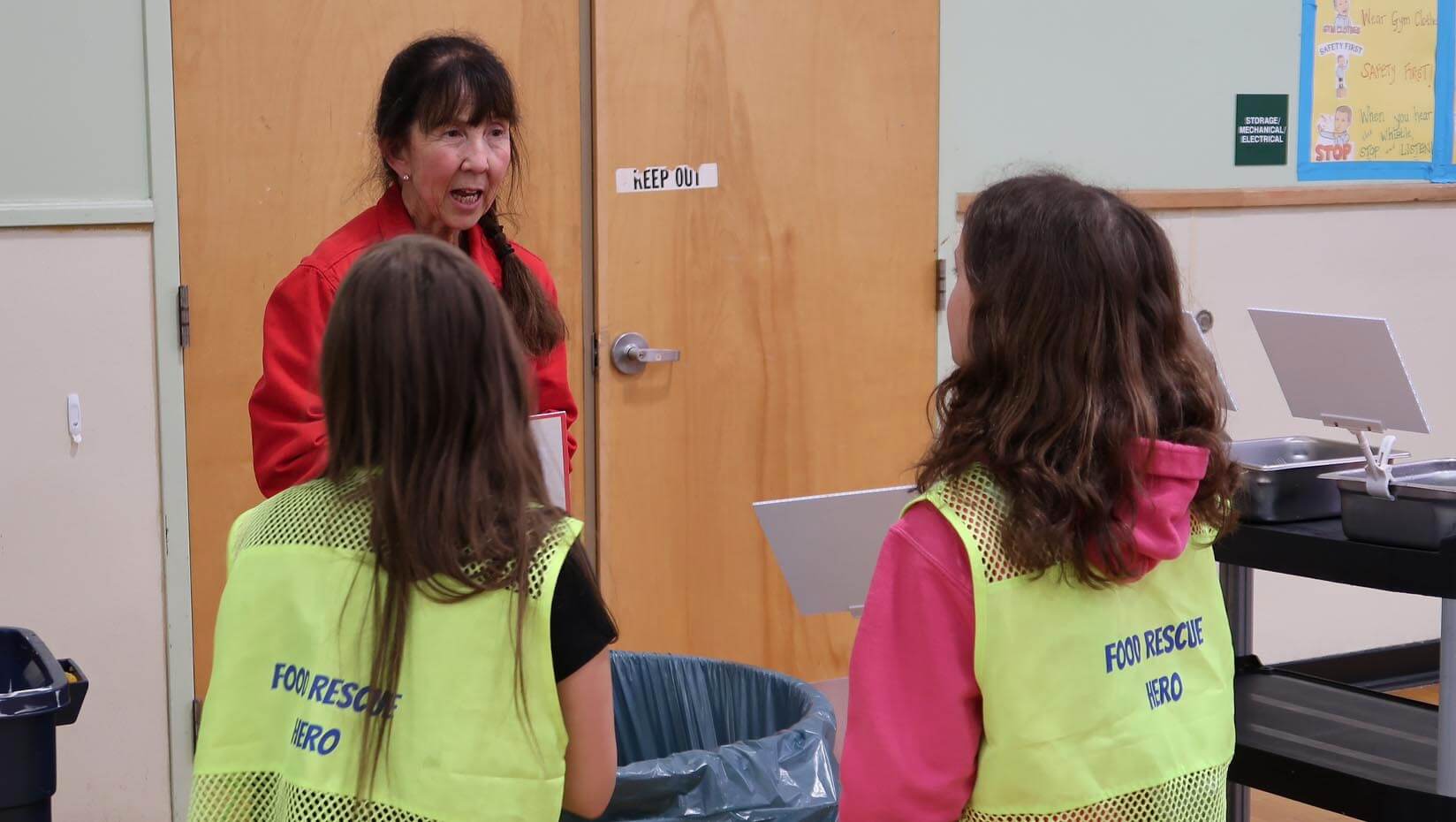
UMaine researchers launch new study to continue reducing wasted food in school cafeterias
Four school districts across Maine were able to reduce their food waste by 20% by participating in a 2023 study conducted by University of Maine researchers. To build on the learning and momentum around reducing wasted food in Maine school cafeterias, UMaine has launched a second Maine School Cafeteria Wasted Food Study with four school districts and support from the World Wildlife Fund.
Students from Brown Elementary School in South Portland, Sherwood Heights Elementary School in Auburn, Sugg Middle School in Lisbon and Easton Elementary School have been given various lessons and activities to learn how they can eat better and waste less food.
New share carts and school community fridges have been set up to allow students to give unopened food that can be eaten by other students or donated to feed the community. Students from kindergarten through eighth grade are learning to separate their food scraps from trash. Their food scraps can be used to feed animals or make compost that can grow new fruits and vegetables. The students weigh their daily food scraps to measure any changes.
“The Food Waste Study is a great opportunity for our students to see firsthand how their choices impact the environment and their community. It’s not just about reducing waste. It is also about learning to be responsible, thoughtful and resourceful,” said Brown Elementary School Principal Beth Kellogg. “By tracking what gets thrown away, students become more mindful of what they take, what they eat and how they can share or save food instead of wasting it. Additionally, we like filling student tummies more than filling landfills.”
In Easton, the food scraps from the school cafeteria are collected at the end of each day by local Amish farmers. This food is then used to feed their livestock and support their local farming and gardening activities.
The activities are part of the eight-week study developed by the Food Rescue MAINE student and faculty team from UMaine’s Senator George J. Mitchell Center for Sustainability Solutions. The study seeks to improve student nutrition and reduce wasted food through hands-on learning.
Study co-leads Susanne Lee, Mitchell Center faculty fellow, and William Brenneman, UMaine graduate student, meet weekly with district school nutrition directors to plan the study implementation and also visit the schools to host engaging, school-wide “How Can You Reduce Wasted Food?” assemblies.
“Working with Food Rescue Maine perfectly complements my academic interests,” said Brenneman. “As a food anthropologist and master’s student in UMaine’s Anthropology & Environmental Policy program, I focus on connecting issues of food, nutrition, waste and society. The way this study hinges on communication and collaboration between our team and nutrition directors, teachers, cafeteria managers, custodians and students makes it a perfect microcosm of the larger food systems questions I tackle in the classroom.”
The study was also developed in collaboration with the Maine Department of Education, state Department of Environmental Protection and the Governor’s Office for Policy & Innovation for the Future. It’s supported by a grant from the World Wildlife Food Waste Warrior program.
“The study is valuable because it has effectively brought together productive communication across multiple departments, inspiring students and adults, and showing the importance of highlighting the concept of getting back to basics with education in the cafeteria and the reason behind the why to reuse and recycle,” said Shawn Perry, Director of the School Nutrition Program for the South Portland School Department.
Food waste leads to economic, social and environmental damage. In the first-ever Maine Food Loss and Waste Generation Study completed in 2024, Food Rescue MAINE found that 361,000 tons of food loss and waste are generated annually in the state. Overall, that is almost 40% of all food produced in Maine. For families, this means an average of $1600 worth of food is thrown away each year.
Throwing food in the trash results in valuable food resources going to non-food disposal resources like Maine landfills where it produces leachate as well as methane and other greenhouse gases harming the environment. Keeping food out of the waste stream and reallocating it to people in need can not only address environmental concerns, but also help tackle food insecurity in the state, which is the highest in New England. According to Feeding America, 180,000 people in Maine — about one in eight — experienced food insecurity in 2022, including one in five children.
In 2015, the Mitchell Center’s Materials Management team was tasked with eliminating wasted food and food loss, as the Maine DEP identified this as the most pressing issue impacting the state’s materials management system. The Food Rescue MAINE program was founded in 2019 to end wasted food and food loss in Maine through stakeholder-driven, transdisciplinary, triple bottom line solutions to support Maine’s food recovery hierarchy.
Contact: Gracie Treadwell, gracie.treadwell@maine.edu
